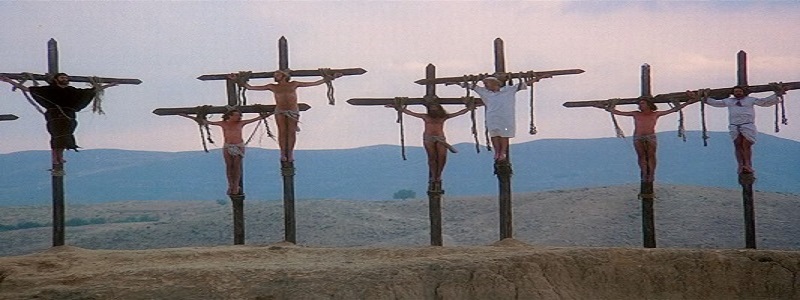I have spent the last several years focusing on climate change as part of my job. I have worked with consultants, contractors, and colleagues on climate vulnerability assessments and adaptation plans, both for Pala and for other Tribes. I have presented, co-presented, and taught at conferences, workshops, and webinars. I have co-authored or edited articles and chapters in journals and reports. I have been interviewed for newspaper articles and podcasts. I have made work on climate change the centerpiece of the Pala Environmental Department’s mission and become very vocal as Pala’s Tribal Historic Preservation Officer (THPO) about the impacts of climate change on Tribal cultural resources, including sacred sites, traditional plants and animals, ceremonies, and cultural practices. But this week in Anchorage, Alaska brought it all crashing home in a way I have never felt before.
I was asked to be a co-trainer for “Elevating Ancestral Practices: Tribal Wellness in Climate Adaptation Planning” for the Alaska Tribal Resilience Learning Network so I could present and share about how Pala has integrated health and wellness strategies into its climate adaptation plan. I was nervous because I was the only non-Indigenous trainer and because the situation in Alaska is very different from southern California. I expected to learn just as much from the other trainers and the attendees as they might learn from me, but I was wrong: I learned much more.
Here is what I learned: it is one thing to read about how climate effects are greater in Alaska, and northern parts of the globe in general; it is another to hear directly from those who are experiencing those effects. We started the workshop with an activity in which participants drew pictures of changes they have seen in their communities and then shared their pictures and their stories. My “which one of these things is not like the other” picture was of a mountain in California before and after a wildfire. My eyes were stinging with tears as I drew the picture – much as they are now as I remember it. But then I heard the other stories and saw the pictures. I kept it together as, one by one, participants shared about rivers, lakes, and shorelines that freeze later and later in the year or don’t freeze at all, making it impossible to hunt on the ice or use the frozen expanses for traveling on their snow machines. I shook my head in wonderment as it dawned on me that all the talk about rain in October and November – which we would celebrate in drought-stricken California – was a bad thing, because it was supposed to be snow. I felt grief and dismay deep in my bones as I heard one participant speak with eloquence about the community effort to build fish fences that are meant to be anchored in the ice… and how the ice wasn’t thick enough to hold them. Her picture showed two people bundled against the cold with their empty hands held out, faces grief-stricken, next to an empty tub that should have been full of fish. There were stories of empty fish-drying racks, and racks where the fish had rotted because the weather turned warm when it should have been freezing, and berry patches where the fruit rotted in the heat, and patches that couldn’t be reached because erosion had destroyed the paths. There were stories of fish camps destroyed by storm surges and tidal ice scraping higher and farther over the shore than it ever had before, and stories about fish dying and rotting in the too-warm rivers before they could spawn. There were stories of villages preparing to relocate and cemeteries eroding into the sea. And we heard about federal agencies refusing to deviate from the cages of their rules, which meant they would build a dike around public buildings to protect them but not around people’s homes, or that they wouldn’t sign off to reimburse the cost of a community-built sea wall without a structural engineer’s inspection. We heard about the loss of Native languages, disappearing cultural practices, community conflict, social problems, and disaffected youth. And we heard from a USGS climate scientist that it is going to get worse – a lot worse – and faster than anywhere else in the world.
I felt outmatched by everything I heard, but I did my best and talked about what we’ve done in Pala to plan for climate effects. One of the things we’ve done for community outreach is develop a robust website and social media presence – something that seems like pretty low-hanging fruit, until a show of hands revealed that most of the communities represented at the workshop have little to no reliable internet access in their villages. My role at the training was meant to show Pala’s work as an example of what could be done, and I did succeed at that, but none of the participants have completed a vulnerability assessment, much less an adaptation plan, so there is a long way to go.
I was overwhelmed and feeling useless… and yet. And yet. These folks were there for a reason. They were there to do something. They were there for hope. And it’s not hopeless. The other trainers, all Indigenous Alaska women, presented on how to use traditional knowledge and practices for strength and healing and on how to identify and use strategies for maintaining community connection through ceremony, compassion, and curiosity. We talked about how the brain can “flip its lid” as a response to stress and how to manage those reactions. We talked about listening to the elders and remembering traditional stories about meeting change with bravery and strength. We participated in prayer, intentional breathing, and blessings. We talked about resilience, even when resilience means leaving one place so you can survive in another. And I heard that my stories about fire and drought in California, and the possibility that we, too, may have to relocate because there is no water, actually helped because it made people feel like they aren’t the only ones. In the end, we left with new friends, new ideas, and new hope.
We are in deep, deep trouble. This is a topic for another time, but the idea that we can mitigate and manage climate change while maintaining our colonial capitalist way of life is not just wrong, it is deadly. It’s about so much more than reducing greenhouse gas emissions. It’s about what right we have to continue our “grow the economy at any cost” ideology at the expense of the life and dignity of not just people, but what I was taught this week to call the plant nations, the animal nations, the fish nations, the insect nations – all the life on earth. Still, where there is life there is hope, and I hope we are able to acknowledge the magnitude of the changes we must make before it is too late.





